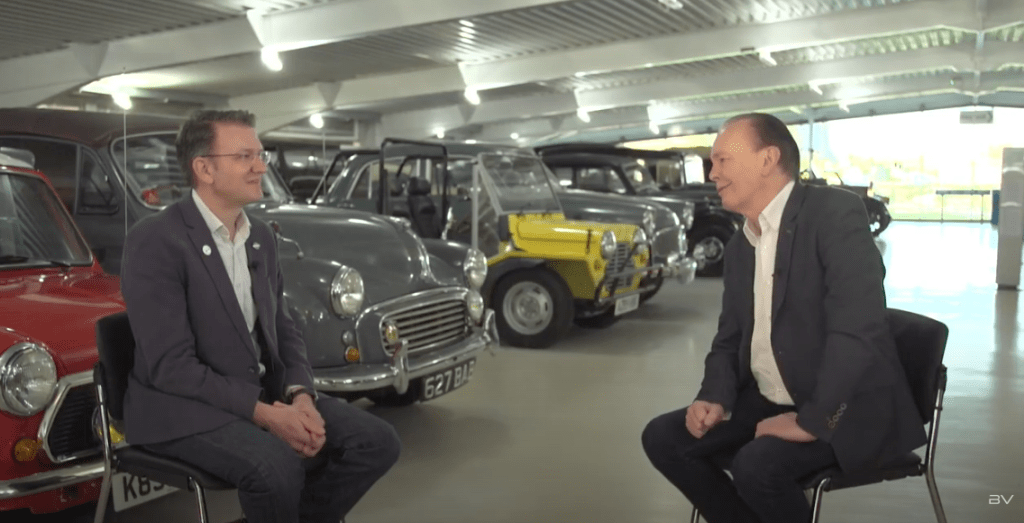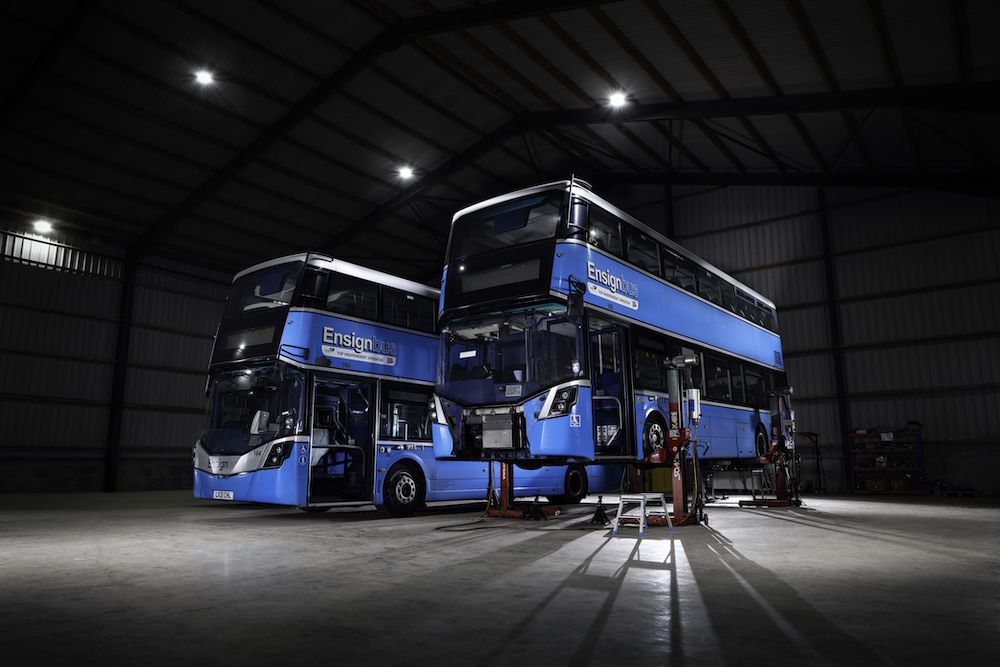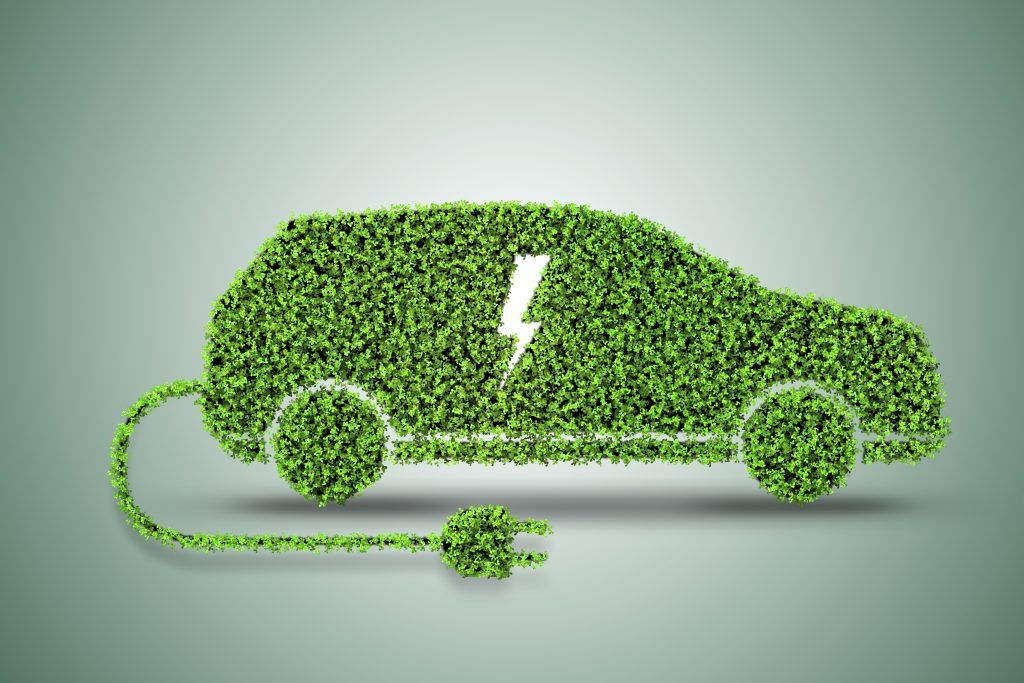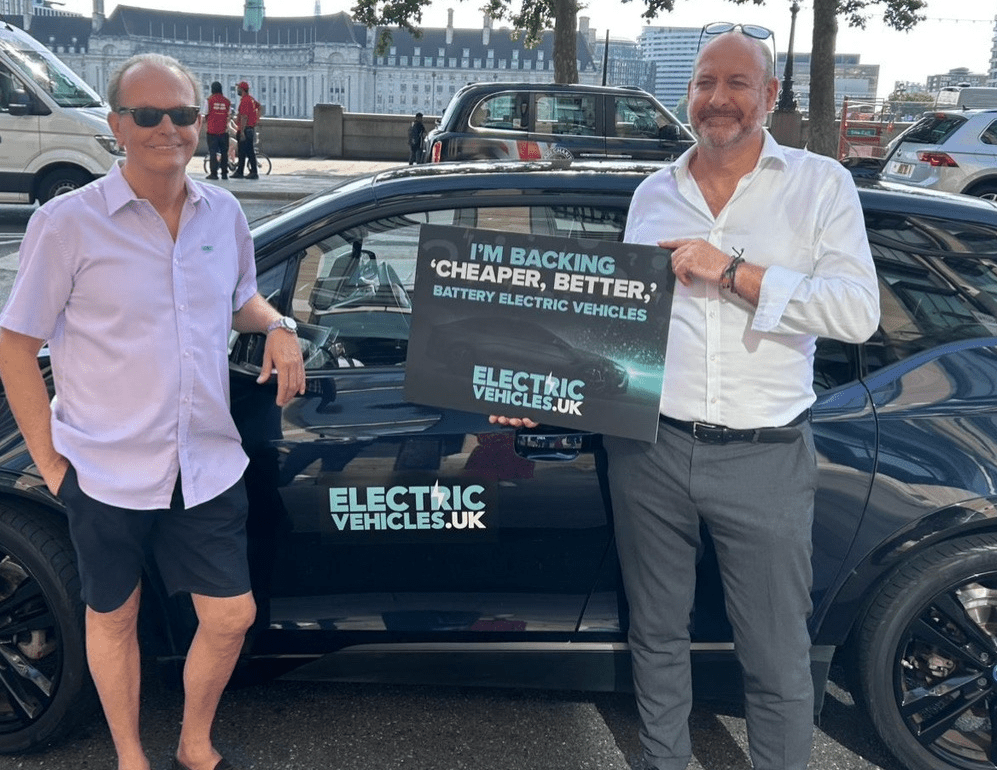Graeme Cooper, Head of Future Markets at National Grid, talks to motoring broadcaster and transport campaigner Quentin Willson about whether the grid can cope with the electrification of transport and his experiences of running an electric vehicle (EV) for 45,000 miles. The below is a transcript of a video interview, which you can watch below, carried out at the British Motor Museum.
Q. Can the grid cope with all these electric cars?
GC: “The short answer is yes it will be fine. Firstly, this is a transition – it is not a cliff edge. The grid has been changing tremendously over the last 20 years. We’ve gone from being principally coal driven to a position where the UK is now powered by more clean energy than by burning stuff. The change going forward for cars is just a continuation of the change of where power comes from.”
Q. Do people have a lack of understanding when it comes to renewable energy?
GC: “The Government has signalled that it wants the entire UK’s energy system to be clean by 2035.”
Q. Is that an aspiration that is possible and what are the benefits?
GC: “It’s challenging, but achievable. If it was easy, we’d do it tomorrow. We will be in a place very close to 2035 where the energy system is clean. Up until about 2017 the dirtiest thing we did as a country was make electricity. We burnt coal and gas and that’s where it all came from. When we moved into 2018 transport became the dirtiest thing we do. It’s not because transport suddenly got dirtier, it is because making power got cleaner. What’s nice now is that the cheapest way of making electricity is through solar and wind. High energy prices are driven by global gas price. The way to get bills cheaper is not to stop building renewables and have more gas, it is to stop using gas and build more renewables.”
Q. There’s some apprehension around renewables because they can be intermittent and variable. Some people worry that if the wind doesn’t blow or the sun doesn’t shine then the lights will go out. Is this a realistic apprehension?
GC: “The UK is a world leader in wind. We’ve got lots onshore, particularly in Scotland which is the windiest place in Europe. The UK has got 10GW of offshore wind today. We’re going to get to 40GW by 2030. If you put a ringfence around that it would power all road transport electrically. The variability is also important. We can pause charging when the wind doesn’t blow. We can prompt chargers to start when there is an excess of wind. We’ve never had that before, so people perceive that EVs are a problem for the energy system. They actually bring as much of a solution as they bring a problem.”
Q. How important will the battery be in future energy storage?
GC: “We’re going to need flexibility everywhere. Batteries do two things. There’s movement of energy – it is being generated now, store it, and use it another time. But also, batteries respond fast, so the grid needs to be stable. It needs to be even and consistent everywhere otherwise things trip out. So, as well as it being an energy tool it’s also a system tool for running grids in a stable way when you have more renewables on them.”
Q. Is transitioning from fossil fuels to batteries a reasonable aspiration?
GC: “Not only is it reasonable, but it is also almost legislated for. On the journey to net zero as a country we have signed up globally to have carbon budgets. Admittedly it is market driven, but it is driven by legislation setting targets and market response to those targets.”
Q. There’s a great fear out there of the change to electrification. What would you say in response to this?
GC: “We fear uncertainty and we fear what we don’t understand. In my view it is important to not be preachy about electric cars. The best way to do this is for people to bust their own myths. Ask someone when you see them charging what their experience is like. Book a test drive, borrow or hire an EV. I did 45,000 miles in my last electric car at a little under 2p per mile.”
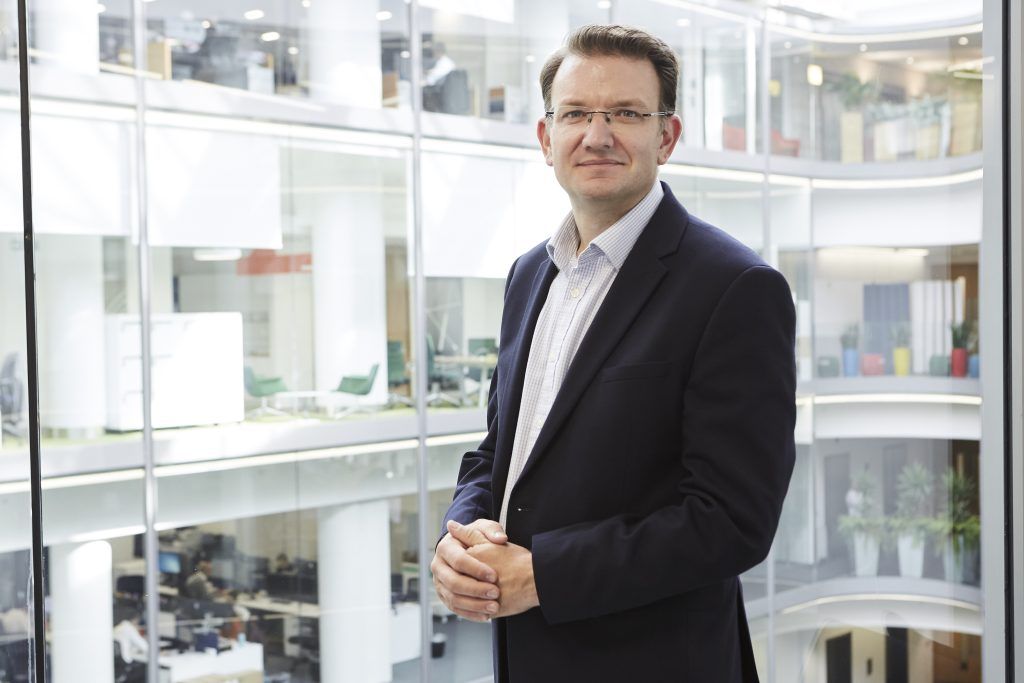
Q. What would you say to people who claim batteries on electric cars wear out and that you must replace them every three to four years?
GC: “Experience tells us that the battery will outlive the car. What you’ll probably see is that when cars get to 100,000 or 150,000 miles and are a bit tired the manufacturer is likely to have the car back from you, take the battery out, put it in a shiny box and sell you back the battery for home storage.”
Q. Tell us about the cost of your electric car.
GC: “People think that electric cars are expensive and from the windscreen price it certainly looks like that. From my personal experience of doing 45,000 miles, I only put one set of tyres on the car and a wiper blade. So, the cost was tiny to run, and it also didn’t depreciate much. Overall, the cost was far cheaper than an equivalent petrol or diesel.”
Q. There’s a big body of people saying we shouldn’t be wasting our time with electrification and should go straight to hydrogen. Tell me whether they are right or wrong?
GC: “Firstly, hydrogen is going to be really important on the journey to net zero. We cannot get to net zero without hydrogen. Things that can go electric need to go electric for the purpose of efficiency. If you do a mile in a battery electric car, you’d need four or five times the amount of power to make hydrogen to do the same mile in a hydrogen car. However, very heavy trucks could well go hydrogen. We’re also going to need a lot of hydrogen for industrial processes. That’s why for cars I can only ever see it being battery electric. The relative efficiency means you wouldn’t do it for hydrogen. I’m not saying that we won’t need hydrogen for very heavy goods vehicles, shipping, aviation, and industrial processes – we will. But when the technology is already ready for cars to go electric, and it’s very efficient, why would you do anything else?”
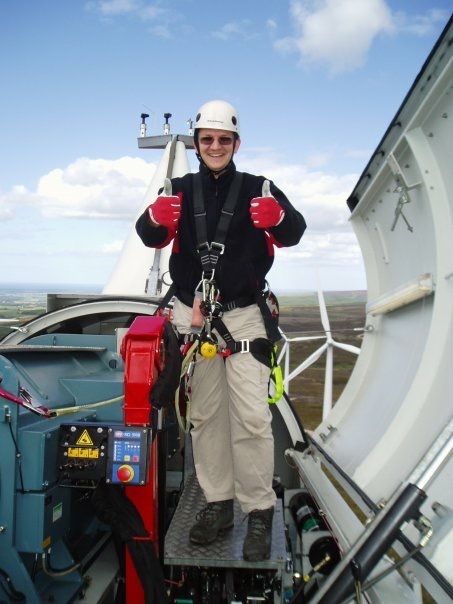
Q. Can people without off-street parking realistically own an electric vehicle if they don’t have anywhere to charge it?
GC: “At the moment they don’t have a fuel pump on the kerb or wherever they park their car. They will refuel their electric car just like they do with a petrol car, but they’ll be more options. You might go to a hub which will look like a petrol station and charge. You might charge whilst you do a class at the gym. Or you might charge at the office whilst you’re doing a day’s work. Or charge at the station when you get on a train to go into town. There will be a whole range of options. Just because you can’t charge at home doesn’t mean you can’t have an electric car.”
Q. For people who still need convincing to get an EV, what would you say to them?
GC: “I’ve been a petrolhead for a long time. But I’ve just had 45,000 miles of driving an EV and it has changed my world. Don’t fear change as it is good to try something new. When you try it, you realise all your fears disappear. What I would say to people is if you can’t make the change now, you don’t have to. This is a transition and not a cliff edge. But have an open mind and maybe even ask someone. If you see someone charging a car, ask them about it. They will tell you their real-world experience and that will cut through all the fear, uncertainty and doubt.”
Transport + Energy’s new ‘Quentin’s Questions’ series will feature electric vehicle campaigner Quentin Willson speaking to various leading players about the progress being made in the transition to clean transport and energy. You can find out more information about the series here.



